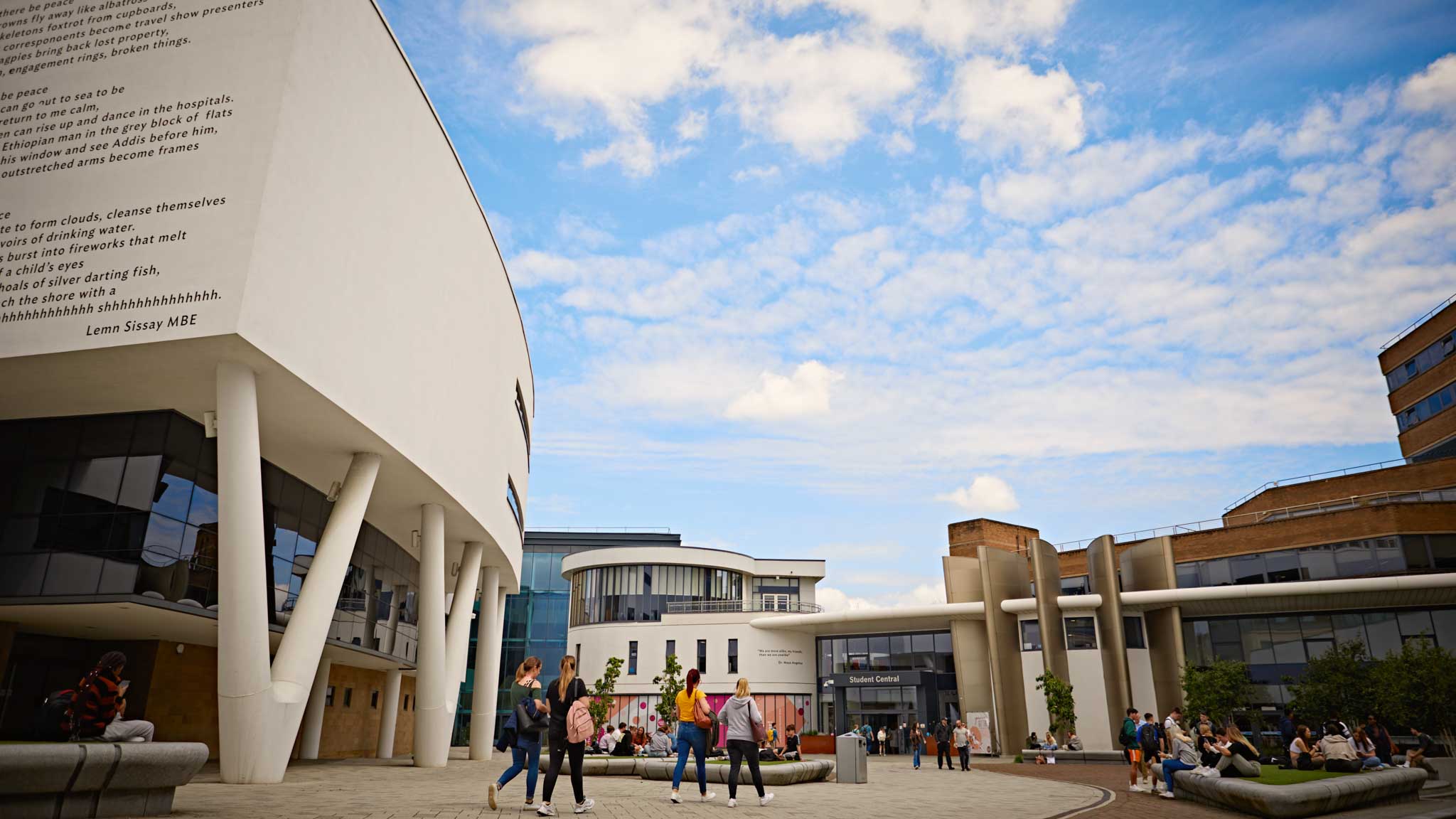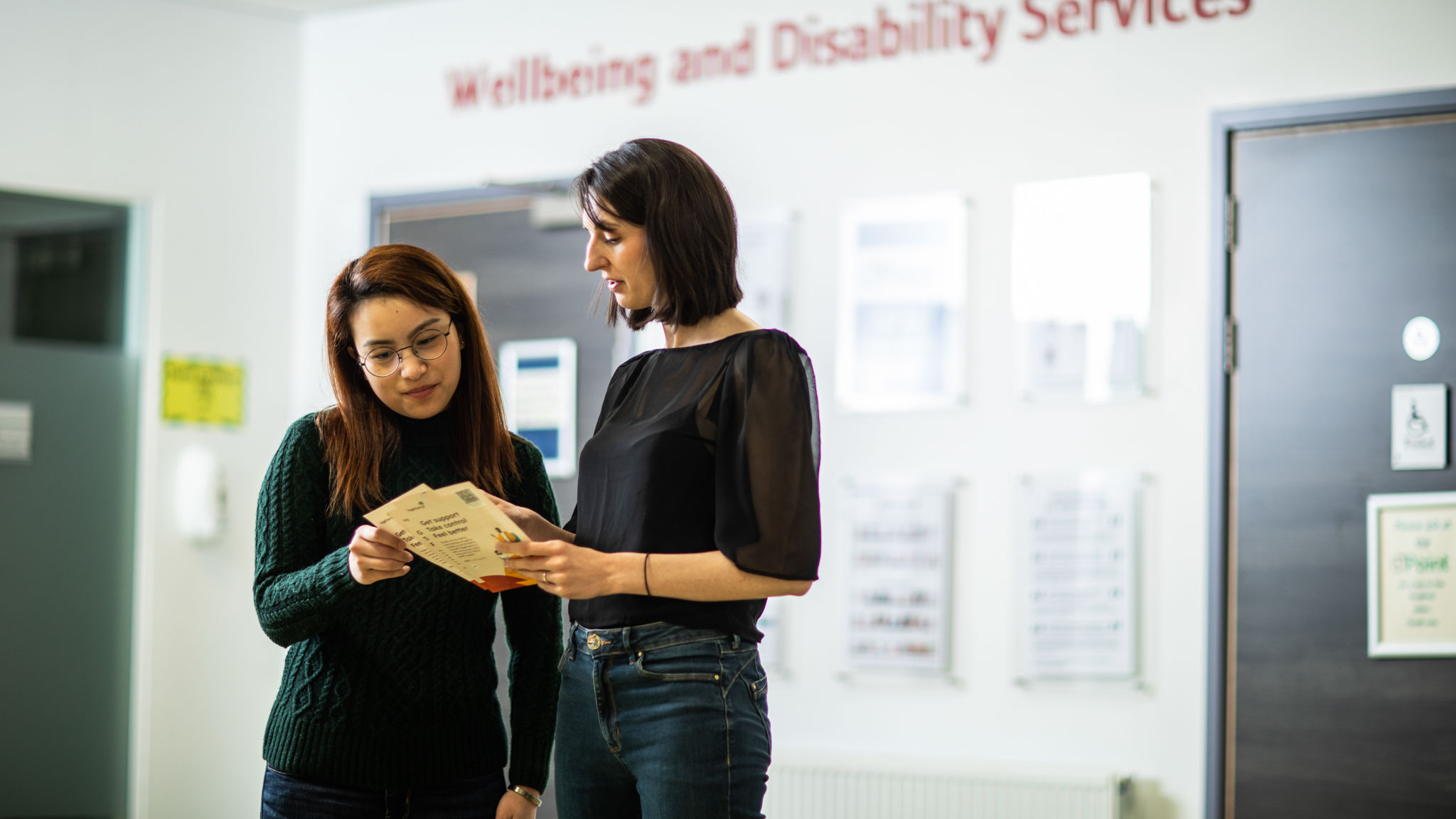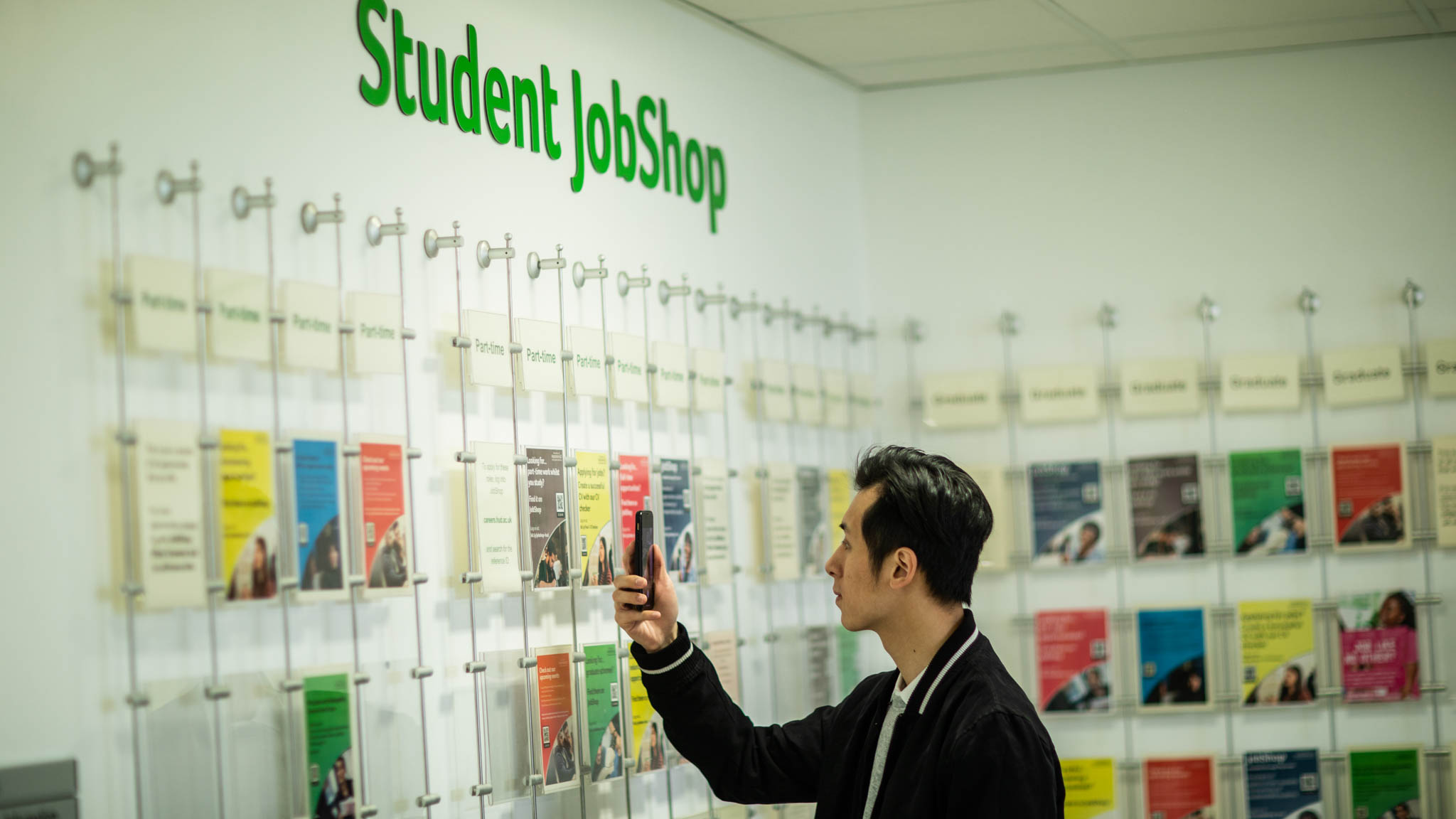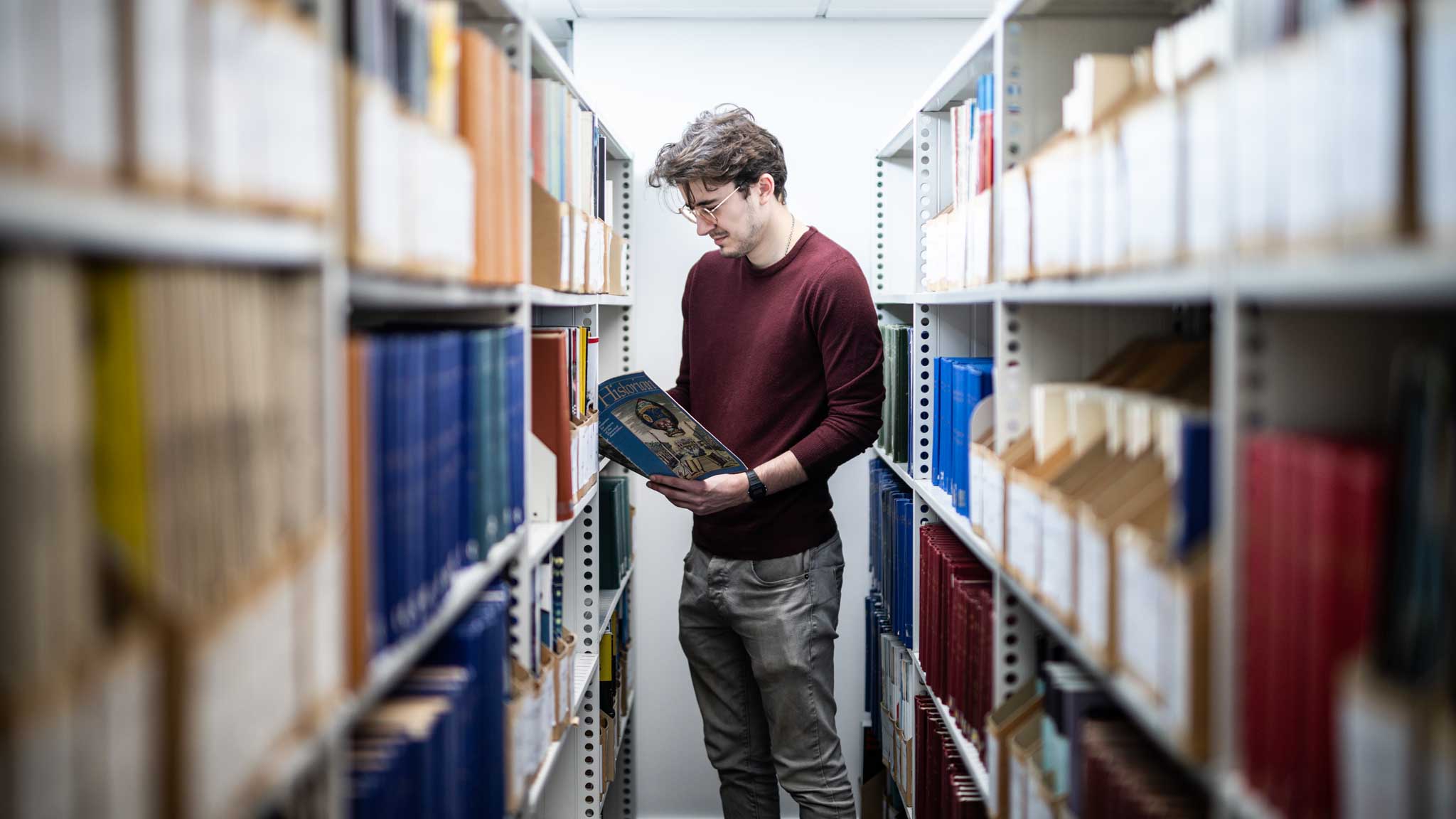
MSc by Research at Huddersfield
Overview
Why choose Huddersfield for this course?
- You will spend most of your time on one substantial research project, not studying multiple modules.
- An MSc by Research prepares you for the structure and expectations of doctoral research.
- You will develop highly transferable research and analytical skills.
A Master of Science (MSc) by Research allows you to undertake a one-year (full-time) research degree, with little or no formal taught component. Choosing a specific project to study gives you a greater degree of independence in your work. Allowing you to explore a research topic over a shorter time, than a more in-depth doctoral programme.
Our research degrees are available to study full and part-time, and some are offered distance learning.
You’ll be expected to work to an approved programme which you will develop in conjunction with your supervisor within the first few months of starting your studies. Whilst undertaking the research project you will also develop your research skills by taking part in training courses and events.
You will be appointed a main supervisor who will normally be part of a team, comprising up to three members. The research supervisor will advise and support you on your project.
At the end of the project, you write up your findings in the form of a short thesis of around 25,000 words, which will then be examined.
On successful completion, you will be awarded your, you may then decide to apply for the full research doctoral degree (PhD).
Research Environment
Why Join Us
As a postgraduate researcher, you’ll join The Graduate School—a hub that connects you with expert staff, resources, and a network of collaborators. An environment designed to spark ideas and foster connections.
Click for more infoHow To Apply
Prospective applicants are encouraged to explore the University’s research community, discover specialist Centres and Institutes, and identify a research area or project that excites you.
Whether you’re applying for a defined project or proposing your own idea, you’ll find guidance on preparing a research proposal and connecting with potential supervisors.
Once you’re ready, you can submit your application through the University’s online portal, where your academic background, proposal quality, and research fit will be carefully considered. With multiple start dates throughout the year, a wide range of funding opportunities, and dedicated support for international applicants, we offer a welcoming and well‑structured route into postgraduate research.
3 Ways to Dive into Research at Huddersfield
Design Your Own Research Project
If you have a particular area of interest, you’ll need to develop and submit your own research proposal. We encourage you to explore the Huddersfield Research Portal, where you can discover the wide range of disciplines and expertise available. Your proposal should outline the topic you wish to investigate and demonstrate how it connects with the research strengths at Huddersfield.
Explore Current Research Projects
For research in Computing, Engineering, Health, Science and Social Sciences, we offer a selection of pre-defined research projects that span the expertise available in these areas. Explore these projects and apply for one that aligns with your area of interest.
Discover Funded Opportunities
Fuel your research ambitions! Explore our list of funded research opportunities across the various fields. Find the perfect fit for your academic interests and kickstart your research journey with some financial support.
Teaching and Assessment
Discover what to expect from your tutor contact time, assessment methods, and feedback process.
Fees and Finance
Full-time: £5,050 per year
Part-time: £2,525 per year
This information is for Home students applying to study at the University of Huddersfield in the academic year 2025/26, both on-campus and distance learning.
Please note that tuition fees for subsequent years may rise in line with inflation (RPI-X) and/or Government policy.
For detailed information please visit https://www.hud.ac.uk/study/fees/
Full-time (on-campus) STEM courses: £18,700 per year
Part-time (on-campus) STEM courses: £8500 per year
Full-time (on-campus) non-STEM courses: £17,600 per year
Part-time (on-campus) non-STEM courses: £8000 per year
Full-time (Distance Learning) STEM courses: £12,600 per year
Part-time (Distance Learning) STEM courses: £6,300 per year
Full-time (Distance Learning) non-STEM courses: £12,000 per year
Part-time (Distance Learning) non-STEM courses: £6000 per year
This information is for International students applying to study at the University of Huddersfield in the academic year 2025/26.
Please note that tuition fees for subsequent years may rise in line with inflation (RPI-X) and/or Government policy.
For detailed information please visit https://www.hud.ac.uk/study/fees/
Scholarships and Bursaries
Discover what additional help you may be eligible for to support your University studies.
Tuition Fee Loans
Find out more about tuition fee loans available to eligible research students.
What’s included in your fee?
We want you to understand exactly what your fees will cover and what additional costs you may need to budget for when you decide to become a student with us.
If you have any questions about Fees and Finance, please email the Student Finance Team.
Gallery
Some facilities available to Postgraduate Research students
Explore More
Why Hud
Explore the unique opportunities and resources that make our institution a top choice for students seeking a well-rounded and future-focused education.
More Info
Student support
At the University of Huddersfield, you’ll find support networks and services to help you get ahead in your studies and social life. Whether you study at undergraduate or postgraduate level, you’ll soon discover that you’re never far away from our dedicated staff and resources to help you to navigate through your personal student journey.
See our support servicesInspiring Academics
Our researchers carry out world-leading work that makes a real difference to people’s lives.
Find out more about our staffResearch Excellence
You’ll be taught by staff who want to support your learning and share the latest knowledge and research.
Find out moreAccommodation
Looking for student accommodation? Huddersfield has you covered. HudLets has a variety of accommodation types to choose from, no matter what your preference. HudLets is the University’s approved accommodation service, run by Huddersfield Students’ Union.
Take a look at your optionsLegal information
We will always try to deliver your course as described on this web page. However, sometimes we may have to make changes as set out below.
When you are offered a place on a research degree, your offer will include confirmation of your supervisory team, and the topic you will be researching and will be governed by our terms & Conditions, student handbook and relevant policies. You will find a guide to the key terms here, along with the Student Protection Plan.
Whilst the University will use reasonable efforts to ensure your supervisory team remains the same, sometimes it may be necessary to make changes to your team for reasons outside the University’s control, for example if your supervisor leaves the University, or suffers from long term illness. Where this is the case, we will discuss these difficulties with you and seek to either put in place a new supervisory team, or help you to transfer to another research facility, in accordance with our Student Protection Plan.
Changes may also be necessary because of circumstances outside our reasonable control, for example pandemics, other disasters (such as fire, flood or war) or changes made by the government. Where this is the case, we will discuss these issues with you and agree any necessary changes.
Your research project is likely to evolve as you work on it and these minor changes are a natural and expected part of your study. However, we may need to make more significant changes to your topic of research during the course of your studies, either because your area of interest has changed, or because we can no longer support your research for reasons outside the University’s control. If this is the case, we will discuss any changes in topic with you and agree these in writing. If you are an international student, changing topics may affect your visa or ATAS clearance and if this is the case we will discuss this with you before any changes are made.
The Office for Students (OfS) is the principal regulator for the University.






